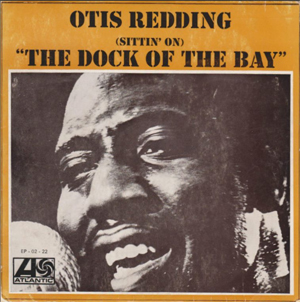Otis Redding’s voice was a force of nature, a powerful instrument that could convey raw emotion with an authenticity few others have matched. His career, though tragically short, left an indelible mark on the landscape of soul music and popular culture at large. From his early days at Stax Records to his posthumous hit “(Sittin’ On) The Dock of the Bay,” Redding’s journey is a testament to the enduring power of genuine artistry.
Redding’s discography reads like a primer on soul music. Songs like “Try a Little Tenderness” and “I’ve Been Loving You Too Long (To Stop Now)” showcase his ability to infuse ballads with deep, heartfelt emotion. These slower numbers allowed Redding to demonstrate the full range of his vocal prowess, from gentle crooning to impassioned pleas. On the flip side, uptempo tracks such as “Respect” (later famously covered by Aretha Franklin) and “Satisfaction” (a dynamic reinterpretation of the Rolling Stones hit) reveal Redding’s capacity for energetic, groove-driven performances that could electrify audiences.
The Stax sound, characterized by its raw, unpolished edge, found its perfect avatar in Redding. Songs like “Mr. Pitiful” and “Fa-Fa-Fa-Fa-Fa (Sad Song)” epitomize this aesthetic, with their prominent horn sections and Redding’s gritty vocals front and center. His unique collaboration with Carla Thomas, the only artist with whom he shared official record credits, produced memorable tracks like “Tramp” and “Knock On Wood.” This partnership not only added a new dimension to Redding’s discography but also demonstrated his ability to create dynamic musical dialogues, further cementing his place in the pantheon of soul music.
Redding’s artistry was marked by his ability to bring fresh interpretations to familiar songs, breathing new life into soul classics and pop hits alike. His renditions of “My Girl” (originally by The Temptations) and “Wonderful World” (popularized by Sam Cooke) showcase his talent for reinvention, infusing these well-known tracks with his distinctive style and emotional depth. Even when covering songs from other genres, Redding demonstrated an uncanny ability to make each song unmistakably his own. His live performances, exemplified by tracks like the energetic rendition of James Brown’s “Papa’s Got A Brand New Bag,” were legendary for their intensity and crowd engagement, further solidifying his reputation as a dynamic and versatile artist.
Tragically, Redding’s life was cut short in a plane crash in 1967, just as he was reaching the height of his powers. His final recording, “(Sittin’ On) The Dock of the Bay,” released posthumously, became his biggest hit and a fitting capstone to a remarkable career. The song’s wistful tone and innovative style (including its famous whistled outro) hinted at new directions Redding might have explored had fate allowed. Today, his music continues to resonate with listeners, a testament to the timeless quality of his artistry and the depth of emotion he brought to every performance.
